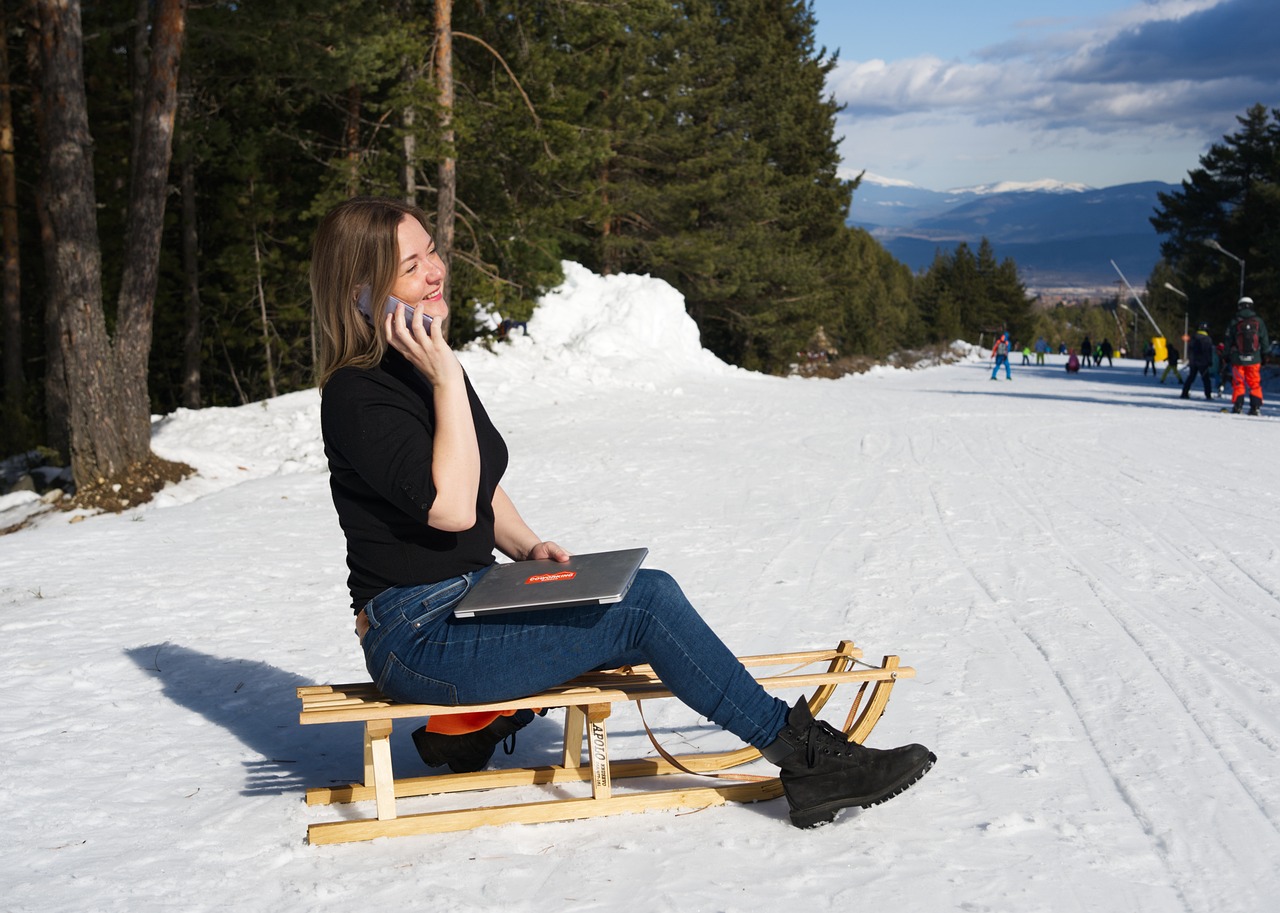This article explores various remote part-time job opportunities for retirees, providing insights on how to stay active and supplement income while enjoying flexibility and independence.
1. Introduction to Remote Work for Retirees
Remote work has become a popular option for many retirees, allowing them to remain engaged in the workforce while enjoying the comforts of home. The benefits of remote jobs are plentiful, including the ability to set your own hours, work from any location, and maintain a healthy work-life balance. This section discusses how remote work can help retirees stay socially active and financially secure.
2. Top Remote Job Options for Retirees
- Freelance Writing and Editing: Retirees can utilize their writing skills to produce content for various industries. Websites like Upwork and Freelancer provide platforms to connect with clients.
- Virtual Tutoring and Teaching: With years of experience, retirees can teach subjects they are passionate about. Online platforms like VIPKid and Chegg Tutors are excellent starting points.
- Customer Service Representative: Many companies hire remote customer service agents, offering flexible hours and training.
- Consulting: Retirees can leverage their professional experience by offering consulting services in their field of expertise.
3. Skills Needed for Remote Jobs
To thrive in remote positions, certain skills are essential:
- Communication Skills: Clear and concise communication is vital in a remote work environment. Retirees should focus on improving both written and verbal communication.
- Technical Proficiency: Familiarity with tools such as Zoom, Slack, and project management software can enhance the remote work experience.
4. Finding Remote Job Opportunities
Finding suitable remote job opportunities can be challenging. Here are some practical tips:
- Job Boards and Websites: Websites like Remote.co and FlexJobs specialize in remote job listings.
- Networking and Professional Groups: Engaging in professional groups on platforms like LinkedIn can open doors to new remote opportunities.
5. Balancing Work and Leisure
Maintaining a healthy work-life balance is crucial for retirees. Setting a schedule that allows time for leisure activities can improve overall well-being.
6. The Financial Benefits of Remote Work
Remote work can provide financial stability, allowing retirees to supplement their income and save on commuting and other expenses related to traditional jobs.
7. Overcoming Challenges in Remote Work
While remote work offers many benefits, retirees may face challenges such as isolation and distractions at home. Developing a dedicated workspace and establishing a routine can help mitigate these issues.
8. Success Stories of Retired Remote Workers
Many retirees have successfully transitioned to remote work, finding fulfillment and financial security. Their stories serve as inspiration for those considering this path.
9. Conclusion: Embrace Remote Work Opportunities
As the workforce evolves, retirees have unique opportunities to stay active and engaged. Embracing remote work can lead to continued fulfillment and financial independence.

1. Introduction to Remote Work for Retirees
Remote work has become a significant trend, especially for retirees looking to stay active and engaged in the workforce. This new work model allows older adults to enjoy the comforts of their homes while still contributing to the economy. In this section, we will explore the benefits and opportunities that remote jobs present for retirees.
One of the primary advantages of remote work for retirees is the flexibility it offers. Many retirees have busy schedules filled with family commitments, hobbies, or travel plans. Remote jobs often allow for adjustable hours, enabling retirees to work at their own pace without the constraints of a traditional office environment. This flexibility not only enhances their quality of life but also helps them maintain a healthier work-life balance.
In addition to flexibility, remote work can provide a sense of purpose. Many retirees miss the camaraderie and engagement of a workplace. Remote jobs can help fill that void, allowing them to connect with colleagues and contribute their skills and knowledge. This social interaction can be particularly beneficial for mental health, combating feelings of isolation that can accompany retirement.
Furthermore, remote work can serve as a valuable source of supplemental income. With rising living costs, many retirees find that a little extra money can significantly ease financial pressures. Remote jobs often come with competitive pay, allowing retirees to earn while enjoying the freedom of working from home. This additional income can be used for travel, hobbies, or simply enhancing their quality of life.
Overall, remote work offers retirees an excellent opportunity to remain engaged, socially connected, and financially stable. As we delve deeper into the various job options available, we will uncover how retirees can leverage their skills and experiences to thrive in this evolving workforce.

2. Top Remote Job Options for Retirees
Remote Part-Time Jobs for Retirees: Stay Active and Earn Money
This article explores various remote part-time job opportunities for retirees, providing insights on how to stay active and supplement income while enjoying flexibility and independence.
1. Introduction to Remote Work for Retirees
Remote work offers retirees a chance to remain engaged in the workforce while enjoying the comforts of home. This section discusses the benefits and opportunities that remote jobs provide for older adults.
There are numerous remote job options suited for retirees, ranging from customer service to consulting. Here, we explore some of the most popular and accessible roles available:
- Customer Service Representative: Many companies seek experienced individuals to handle customer inquiries, providing support via phone, chat, or email. This role often offers flexible hours.
- Consultant: Retirees with extensive experience in their field can offer consulting services, sharing their expertise with businesses looking for guidance.
- Freelance Writing and Editing: Retirees can utilize their writing skills to create content for blogs, websites, and publications. This role allows for creativity and flexibility.
- Virtual Tutoring and Teaching: Those with a background in education can teach or tutor students online, focusing on subjects they are passionate about.
- Data Entry: Simple yet essential, data entry jobs require attention to detail and can often be performed from the comfort of home.
3. Skills Needed for Remote Jobs
Certain skills can enhance employability in remote positions. This section outlines essential skills retirees should focus on to succeed in the remote job market.
4. Finding Remote Job Opportunities
Finding suitable remote job opportunities can be challenging. This section provides practical tips on where and how retirees can search for remote positions effectively.
5. Balancing Work and Leisure
Maintaining a healthy work-life balance is essential for retirees. This section offers tips on how to manage time effectively while enjoying leisure activities.
6. The Financial Benefits of Remote Work
Remote work can provide financial stability. This part explores how retirees can supplement their income and the potential savings associated with working from home.
7. Overcoming Challenges in Remote Work
While remote work offers many benefits, it also presents challenges. This section discusses common obstacles retirees may face and strategies to overcome them.
8. Success Stories of Retired Remote Workers
Inspiration can be found in the success stories of retirees who have embraced remote work. This section shares testimonials and experiences from those who have thrived in remote positions.
9. Conclusion: Embrace Remote Work Opportunities
As the workforce evolves, retirees have unique opportunities to stay active and engaged. This conclusion encourages retirees to consider remote work as a viable option for continued fulfillment and income.
2.1. Freelance Writing and Editing
Freelance writing and editing is an excellent avenue for retirees looking to stay active while sharing their wealth of knowledge and experience. This growing field not only allows individuals to express their creativity but also offers the flexibility to work from the comfort of their own homes.
To embark on a successful freelance writing or editing career, retirees should first identify their niche. Whether it’s travel, health, finance, or technology, having a specific area of expertise can help attract potential clients. Once a niche is established, the next step is to create a portfolio showcasing previous work or writing samples. This portfolio serves as a valuable tool for demonstrating skills to prospective clients.
Finding clients in the freelance world can be challenging, but there are numerous platforms designed to connect freelancers with businesses in need of writing and editing services. Websites such as Upwork, Fiverr, and Freelancer are excellent starting points. Additionally, retirees can leverage their personal and professional networks to spread the word about their services.
Networking is also essential for sustaining a freelance career. Joining online communities or forums related to writing can provide support and lead to potential opportunities. Participating in social media platforms like LinkedIn can further enhance visibility and credibility.
Moreover, retirees should stay updated on industry trends and continuously hone their skills. Taking online courses or attending workshops can help improve writing and editing abilities, making them more competitive in the marketplace.
In conclusion, freelance writing and editing offer retirees a fulfilling way to stay engaged while earning extra income. By identifying their niche, creating a solid portfolio, utilizing freelance platforms, and networking effectively, retirees can successfully navigate this rewarding field.
2.2. Virtual Tutoring and Teaching
Virtual Tutoring and Teaching have emerged as valuable opportunities for retirees to utilize their extensive knowledge and experience in education. With the rise of online learning platforms, retired educators can now engage with students from the comfort of their homes, making a significant impact while earning extra income.
Many platforms cater to virtual tutoring and teaching, each offering unique features that appeal to different teaching styles and subject areas. Some of the most popular platforms include:
- VIPKid: Focuses on teaching English to children in China, allowing retirees to connect with eager learners.
- Wyzant: Offers a wide range of subjects, enabling retirees to teach anything from mathematics to music.
- Chegg Tutors: Provides on-demand tutoring services across various subjects, perfect for retirees looking for flexible hours.
- Udemy: Allows retirees to create and sell their own courses, sharing their expertise on topics they are passionate about.
The subjects in demand for online teaching are diverse. Retirees can leverage their backgrounds in areas such as:
- Language Instruction: Teaching English as a second language (ESL) or other languages.
- STEM Subjects: Science, Technology, Engineering, and Mathematics are always in high demand.
- Arts and Humanities: Courses in history, literature, and the arts can attract students of all ages.
- Test Preparation: Helping students prepare for standardized tests like the SAT or ACT.
Retirees can also benefit from the flexibility that virtual tutoring offers. They can choose their hours, allowing them to balance work with personal interests and activities. This flexibility not only helps in maintaining a healthy work-life balance but also keeps retirees mentally active and socially engaged.
In conclusion, virtual tutoring and teaching present an excellent opportunity for retirees to share their knowledge, stay active, and earn money. With the right platform and subject matter, retirees can find fulfillment in this rewarding endeavor.

3. Skills Needed for Remote Jobs
In today’s evolving job market, especially for retirees seeking remote work, certain skills can significantly enhance employability. Focusing on these essential skills will not only improve job prospects but also ensure success in a competitive landscape. Below are the key skills retirees should prioritize:
- Communication Skills: Effective communication is paramount in remote work. Retirees must be adept at expressing ideas clearly and concisely, both in written and verbal forms. Utilizing tools like email, video conferencing, and instant messaging requires a good grasp of professional language and etiquette.
- Technical Proficiency: Familiarity with technology is crucial. Retirees should become comfortable with various software and tools, such as Microsoft Office, Google Workspace, and project management platforms like Trello or Asana. Understanding how to troubleshoot basic tech issues can also be a valuable asset.
- Time Management: Remote work often requires self-discipline. Retirees should develop strong time management skills to balance work responsibilities with personal commitments. Utilizing calendars and setting reminders can help maintain productivity.
- Adaptability: The ability to adapt to new situations and changes is vital in remote environments. Retirees should be open to learning new technologies and adjusting to different workflows, which can enhance their versatility as employees.
- Problem-Solving Skills: Remote work can present unique challenges. Cultivating problem-solving skills will enable retirees to navigate issues independently and contribute positively to their teams.
By honing these skills, retirees can not only improve their chances of securing remote positions but also thrive in their roles. Embracing continuous learning and staying updated with industry trends will further enhance their employability in the remote job market.
3.1. Communication Skills
Effective communication plays a pivotal role in the success of remote work, especially for retirees who may be navigating this landscape for the first time. In a virtual environment, where face-to-face interactions are limited, clarity and conciseness become essential components of communication. Retirees must adapt their communication styles to ensure their messages are understood, whether they are engaging in written correspondence or verbal discussions.
Firstly, written communication is often the primary mode of interaction in remote work settings. Retirees should focus on crafting emails, reports, and other documents that are straightforward and to the point. Using bullet points or numbered lists can help organize thoughts and make information easier to digest. Additionally, employing tools like spell check and grammar check can enhance professionalism and avoid misunderstandings.
On the other hand, verbal communication is equally important. Video calls and phone conversations are common in remote work. Retirees should practice speaking clearly and at a moderate pace, ensuring their ideas are conveyed effectively. It’s also beneficial to actively listen and ask clarifying questions to confirm understanding. This two-way communication fosters a collaborative environment and builds rapport with colleagues.
Moreover, utilizing various communication tools can significantly enhance interaction. Familiarity with platforms like Zoom, Slack, or Microsoft Teams can make it easier for retirees to connect with others. These tools often come with features that facilitate better communication, such as screen sharing and chat functions, which can be particularly helpful in conveying complex information.
In conclusion, developing strong communication skills is crucial for retirees engaging in remote work. By focusing on clear, concise, and effective communication, they can foster positive relationships and achieve greater success in their roles.
3.2. Technical Proficiency
Technical Proficiency is increasingly essential for retirees seeking remote work opportunities. As the digital landscape evolves, understanding and utilizing various technological tools can significantly enhance the work experience. This section delves into the critical software and platforms that retirees should familiarize themselves with to thrive in a remote work environment.
In today’s job market, a solid grasp of technology can set candidates apart. Here are some key areas and tools that retirees should focus on:
- Communication Tools: Familiarity with platforms like Zoom, Slack, and Microsoft Teams is vital for effective collaboration and communication with colleagues and clients. Understanding how to use these tools can help retirees stay connected and engaged.
- Project Management Software: Tools such as Trello, Asana, and Monday.com are essential for managing tasks and deadlines. Learning to navigate these platforms can improve organizational skills and productivity.
- File Sharing and Storage: Familiarity with cloud storage solutions like Google Drive and Dropbox enables retirees to share documents and collaborate seamlessly. Knowing how to utilize these tools ensures that important files are accessible from anywhere.
- Basic Digital Literacy: Understanding how to use word processors, spreadsheets, and presentation software (such as Microsoft Office or Google Workspace) is fundamental. These skills are often required for various remote positions.
- Cybersecurity Awareness: As remote work increases, so do cybersecurity threats. Retirees should educate themselves about safe online practices, such as recognizing phishing attempts and using strong passwords to protect personal information.
By investing time in learning these essential tools, retirees can significantly enhance their remote work experience, making them more competitive in the job market. Embracing technology not only improves job performance but also contributes to personal growth and confidence in navigating the digital world.

4. Finding Remote Job Opportunities
Finding suitable remote job opportunities can be a complex task, especially for retirees looking to transition into the digital workforce. However, with the right strategies and resources, this process can become much more manageable. Below are practical tips on where and how retirees can effectively search for remote positions.
- Utilize Specialized Job Boards: Websites such as FlexJobs and Remote.co focus specifically on remote work. These platforms curate job listings that are ideal for retirees, ensuring that they can find opportunities that match their skills and interests.
- Leverage Networking Platforms: Social media platforms like LinkedIn offer valuable networking opportunities. Retirees can join groups related to their fields of interest, connect with former colleagues, and engage in discussions that may lead to job opportunities.
- Explore Company Websites: Many companies have dedicated career pages that list remote job openings. Retirees should regularly check the websites of organizations they admire or have previously worked for to find potential job listings.
- Attend Virtual Job Fairs: Online job fairs are becoming increasingly popular. These events provide retirees with the chance to meet employers, learn about available positions, and even participate in interviews—all from the comfort of their homes.
- Consider Freelancing: Platforms like Upwork and Fiverr allow retirees to offer their skills on a freelance basis. This can be a great way to test the waters of remote work while also earning money.
In summary, retirees should explore a variety of avenues when searching for remote job opportunities. By utilizing dedicated job boards, networking platforms, and company websites, they can significantly enhance their chances of finding suitable positions. With persistence and the right approach, remote work can be a fulfilling and rewarding experience.
4.1. Job Boards and Websites
In the digital age, finding remote work opportunities has become easier than ever, especially for retirees looking to stay active and earn some extra income. Numerous job boards and websites specifically cater to remote job seekers, providing tailored listings that meet the unique needs of older adults. Here are some of the most popular platforms:
- FlexJobs: A well-known site that specializes in remote, part-time, freelance, and flexible jobs. FlexJobs offers a curated list of job postings, ensuring that retirees can find legitimate opportunities without the hassle of sifting through scams.
- Remote.co: This platform focuses exclusively on remote work and features a variety of job categories, including customer service, marketing, and tech roles. Retirees can easily browse through listings and apply directly on the site.
- We Work Remotely: One of the largest remote work communities, We Work Remotely connects job seekers with employers offering remote positions across various industries. The site is user-friendly and allows retirees to filter jobs by category.
- Upwork: A freelance marketplace where retirees can offer their skills and services. Whether it’s writing, graphic design, or consulting, Upwork provides a platform for retirees to connect with clients seeking their expertise.
- Indeed: While not exclusively a remote job board, Indeed has a comprehensive search feature that allows users to filter for remote jobs. Retirees can find a wide range of job listings from various industries.
By utilizing these platforms, retirees can easily navigate the remote job market, find opportunities that align with their skills and interests, and enjoy the flexibility that comes with remote work. Remember to tailor your resume and cover letter for each application, emphasizing your unique experiences and skills that make you a valuable candidate.
4.2. Networking and Professional Groups
Networking and Professional Groups play a crucial role in enhancing job prospects, especially for retirees looking to re-enter the workforce or find part-time remote opportunities. As the job market evolves, leveraging connections can significantly increase the likelihood of finding suitable employment.
One of the most effective ways retirees can enhance their job search is by joining professional groups related to their field of expertise. These groups often provide valuable resources, including job listings, networking events, and workshops that can help retirees stay updated on industry trends. Additionally, many professional organizations offer mentorship programs, allowing retirees to connect with younger professionals and share their wealth of knowledge.
Social media platforms, particularly LinkedIn, have transformed how individuals network. Retirees can create a professional profile that highlights their skills and experiences, making it easier for potential employers to find them. By actively engaging with content relevant to their industry, retirees can also establish themselves as thought leaders, which can attract job opportunities.
- Join Relevant Groups: Participating in industry-specific groups on platforms like LinkedIn can lead to valuable connections.
- Attend Virtual Networking Events: Many organizations host online events that allow retirees to meet potential employers and fellow job seekers.
- Utilize Alumni Networks: Reaching out to former colleagues or alumni can open doors to job opportunities that may not be publicly advertised.
Furthermore, retirees should consider volunteering or taking part in community service projects. This not only helps in building connections but also enhances their resumes by showcasing a commitment to ongoing engagement and personal growth.
In conclusion, by effectively utilizing networking and professional groups, retirees can significantly enhance their job prospects. Engaging with these resources can lead to meaningful connections and ultimately, rewarding job opportunities that align with their skills and interests.

5. Balancing Work and Leisure
Balancing Work and Leisure is a crucial aspect of life, especially for retirees. As individuals transition from full-time careers to retirement, it becomes essential to find a harmonious balance between work commitments and personal time. This section provides valuable tips on how to effectively manage time while enjoying leisure activities.
Retirement should not mean the end of productivity. Engaging in remote part-time jobs can keep retirees active and mentally stimulated. However, it is equally important to allocate sufficient time for relaxation and hobbies. Here are some practical strategies to achieve this balance:
- Set Clear Boundaries: Define specific working hours to ensure that work does not encroach on personal time. This helps in maintaining a structured routine.
- Prioritize Tasks: Create a daily or weekly to-do list, prioritizing tasks based on urgency and importance. This allows retirees to focus on what truly matters.
- Incorporate Leisure Activities: Schedule time for hobbies, exercise, or social activities. Engaging in enjoyable pursuits can rejuvenate the mind and body.
- Practice Mindfulness: Techniques such as meditation or yoga can help retirees stay present and reduce stress, making it easier to switch between work and leisure.
- Stay Flexible: Life can be unpredictable. Being adaptable allows retirees to adjust their schedules without feeling overwhelmed.
By following these tips, retirees can create a fulfilling routine that balances work and leisure, ensuring they remain engaged while also enjoying the fruits of their labor. Remember, a healthy work-life balance not only enhances productivity but also contributes to overall well-being.

6. The Financial Benefits of Remote Work
Remote work has become an increasingly popular option for retirees seeking to maintain their financial stability while enjoying the flexibility of working from home. This section delves into how retirees can effectively supplement their income through remote work and the potential savings that come with this lifestyle choice.
One of the most significant advantages of remote work is the ability to earn a steady income without the constraints of a traditional office environment. Retirees can explore various part-time job opportunities that align with their skills and interests, allowing them to contribute to their household finances while also staying engaged and active. Here are some key financial benefits of remote work for retirees:
- Supplementing Retirement Income: Many retirees find that their retirement savings may not be sufficient to cover all their expenses. Remote work provides a viable solution by allowing them to earn additional income, which can help alleviate financial stress.
- Reduced Commuting Costs: Working from home eliminates the need for daily commuting, which can lead to significant savings on transportation costs, fuel, and vehicle maintenance.
- Flexible Hours: Remote jobs often offer flexible schedules, enabling retirees to work during their most productive hours. This flexibility allows them to manage their time effectively, balancing work with leisure activities.
- Tax Benefits: Depending on the nature of the work, retirees may be eligible for certain tax deductions related to their home office setup, which can further enhance their financial situation.
- Lower Living Expenses: Many remote jobs allow retirees to live in areas with a lower cost of living, as they are no longer tied to a specific geographic location for employment.
In conclusion, remote work offers retirees a unique opportunity to enhance their financial stability while enjoying the independence that comes with working from home. By exploring various remote job options, retirees can find fulfilling work that not only supplements their income but also enriches their lives.

7. Overcoming Challenges in Remote Work
While remote work presents numerous advantages, it also comes with its own set of challenges, particularly for retirees. As individuals transition into this new working environment, they may encounter various obstacles that can affect their productivity and overall experience. This section delves into common challenges retirees may face and offers effective strategies to overcome them.
- Isolation and Loneliness: One of the most significant challenges retirees face is the feeling of isolation. Working from home can limit social interactions, leading to loneliness. To combat this, retirees can schedule regular virtual coffee breaks with colleagues or join online communities that share similar interests.
- Time Management: Without a structured office environment, some retirees may struggle with managing their time effectively. Establishing a daily routine that includes set working hours can help create a balance between work and leisure. Utilizing tools like calendars and task management apps can also enhance productivity.
- Technological Barriers: Many retirees may not be as familiar with the technology required for remote work. To overcome this, it is essential to invest time in learning necessary software and tools. Online tutorials, webinars, and community college courses can provide valuable training.
- Distractions at Home: Working from home can bring about various distractions, such as household chores or family interruptions. Creating a dedicated workspace that minimizes distractions can help retirees focus better on their tasks.
- Health and Ergonomics: Prolonged hours spent in front of a computer can lead to health issues. Retirees should ensure their workspace is ergonomically friendly, taking regular breaks to stretch and move around. Simple exercises can help alleviate discomfort and improve overall well-being.
By acknowledging these challenges and implementing the suggested strategies, retirees can successfully navigate the world of remote work. Embracing this new way of working not only allows them to stay active but also provides an opportunity to earn income while enjoying the flexibility of working from home.

8. Success Stories of Retired Remote Workers
Inspiration can be found in the success stories of retirees who have embraced remote work. Many retirees have discovered that transitioning to remote positions not only keeps them engaged but also allows them to earn a supplementary income while enjoying the flexibility of working from home.
One such retiree, John Smith, a former school teacher, decided to explore virtual tutoring after retiring. He started offering online math tutoring sessions to high school students. John found that his extensive teaching experience translated well into the online environment, allowing him to connect with students in a meaningful way. He has since built a steady clientele and enjoys the additional income while staying intellectually active.
Another inspiring story is that of Mary Johnson, who turned her passion for writing into a successful freelance career. After retiring from her corporate job, Mary began writing articles for various online publications. She emphasizes that the flexibility of freelance work allows her to manage her time effectively, balancing her writing projects with her hobbies and family commitments. Mary encourages fellow retirees to pursue their interests, stating, “It’s never too late to follow your passion and earn money while doing it.”
These testimonials highlight the potential for retirees to thrive in remote positions. By leveraging their skills and experiences, retirees can find fulfilling work that suits their lifestyles. The key takeaway is that remote work offers not just financial benefits but also the opportunity to stay active and engaged in the community.
Overall, the success stories of retirees in remote work serve as a powerful reminder that age is not a barrier to pursuing new opportunities. With determination and the right mindset, retirees can embrace the digital workforce and enjoy a rewarding second act.

9. Conclusion: Embrace Remote Work Opportunities
Conclusion: Embrace Remote Work Opportunities
As the workforce continues to evolve, retirees are presented with unique opportunities to remain active and engaged. The shift towards remote work has opened new avenues for those in their golden years, allowing them to contribute their skills while enjoying the comforts of home. This conclusion aims to encourage retirees to consider remote work as a viable option for continued fulfillment and additional income.
Remote work offers flexibility, enabling retirees to set their own schedules and choose projects that align with their interests and expertise. This flexibility not only helps in maintaining a healthy work-life balance but also fosters a sense of independence and purpose. For many retirees, the chance to engage in meaningful work can significantly enhance their quality of life.
Moreover, the financial benefits of remote work cannot be overlooked. Many retirees find that supplementing their income through remote jobs can alleviate financial pressures, allowing them to enjoy their retirement without the stress of monetary constraints. In addition, working from home can save costs associated with commuting and professional attire.
To successfully navigate the remote job market, retirees should focus on developing essential skills such as communication and technical proficiency. Familiarity with digital tools and platforms is crucial in today’s job landscape, and retirees can take advantage of various online resources to enhance their skill sets.
In conclusion, the transition to remote work provides retirees with an excellent opportunity to stay connected, engaged, and financially secure. By embracing these opportunities, retirees can continue to make valuable contributions to the workforce while enjoying the benefits of a flexible and fulfilling lifestyle.
Frequently Asked Questions
- What types of remote part-time jobs are suitable for retirees?
Retirees can explore a variety of remote part-time jobs such as freelance writing, virtual tutoring, customer service, and consulting. These roles allow for flexible schedules and the opportunity to utilize existing skills.
- How can I find remote job opportunities as a retiree?
Finding remote job opportunities can be done through dedicated job boards like FlexJobs, Remote.co, or even general sites like Indeed. Networking through social media platforms and joining professional groups can also help uncover job leads.
- What skills do I need to succeed in remote work?
Essential skills for remote work include strong communication abilities, both written and verbal, and a basic understanding of technology. Familiarity with tools like Zoom, Google Workspace, and project management software can greatly enhance your employability.
- Can remote work provide financial stability for retirees?
Absolutely! Remote work can supplement retirement income and provide financial security. It can help cover expenses and even allow retirees to save more, all while enjoying the flexibility of working from home.
- What are some common challenges retirees face in remote work?
Common challenges include feelings of isolation, managing time effectively, and adapting to new technologies. However, these can be overcome by setting a routine, engaging in social interactions online, and continuously learning new skills.


































































